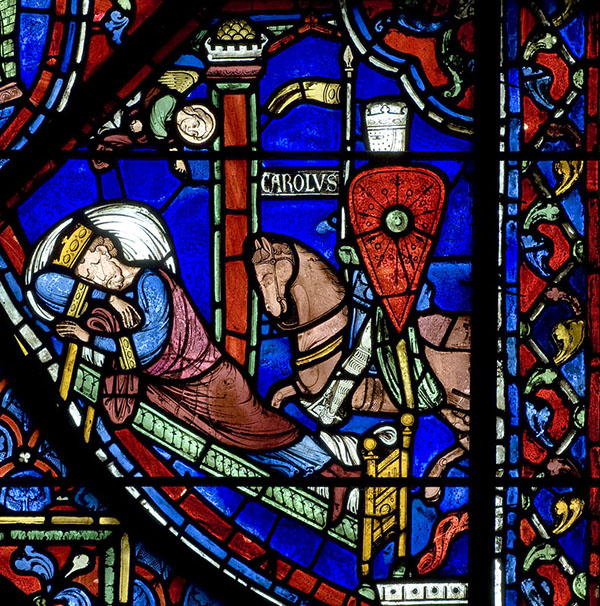No contemporary written chronicle from Charlemagne's lifetime explicitly mentioned his defeat. A military defeat could significantly destabilize the kingdom, and indeed, the campaign in the Basque Country triggered Widukind's rebellion in Saxony. Widukind logically seized the opportunity provided by the absence of the main Carolingian forces to launch his own retaliatory strikes in the north.
The initial version of the Annales Regni Francorum does not mention the battle; it simply states that having received many gifts from Ibn al-Arabi, Abu Taur, and many other Saracens, and having destroyed Pamplona, King Charles returned to his realm after having subdued the Hispanics Muslims and the Basques.

However, following the emperor's death, the revised version of the Annales Regni Francorum added significant new details to the previous account, revealing that Charles had indeed decided to retreat through Errozabal, where his forces were ambushed, impacting the entire army (totum exercitum magno tumultu perturbant). This updated chronicle also provided extensive information and insights into the reasons for the defeat and why it was not possible to avenge the many warriors who died on the battlefield.
In writing the Vita Karoli Magni (The Life of Charlemagne) in the early ninth century, Einhard made crucial modifications to the narrative found in the Annales Regni Francorum. He clarified that the battle did not affect "the whole army" but targeted "the rear part of the supply caravan and the troops of the rearguard" (extrem impedimentorum partem et eos qui novissimi agminis incede subsidiary praecedentes tuebantur). This specification has led to the common belief that the Basques attacked only the Frankish rearguard. Notably, Einhard was the first to name three of the fallen paladins: The palace seneschal Eggihard, the court's palatine Anshelm, and Roland, prefect of the march of Brittany, among others.
The account by the Astronomer in the Vita Hludovici Pii around the year 840 also provides a detailed recounting of the events, indicating that sixty years after the battle, it continued to captivate chroniclers to such an extent that they felt compelled to include it in their writings.
These accounts collectively affirm the battle's significant scale and decisive nature, explaining why this event would inspire one of the first epic poems in European literature three centuries later.